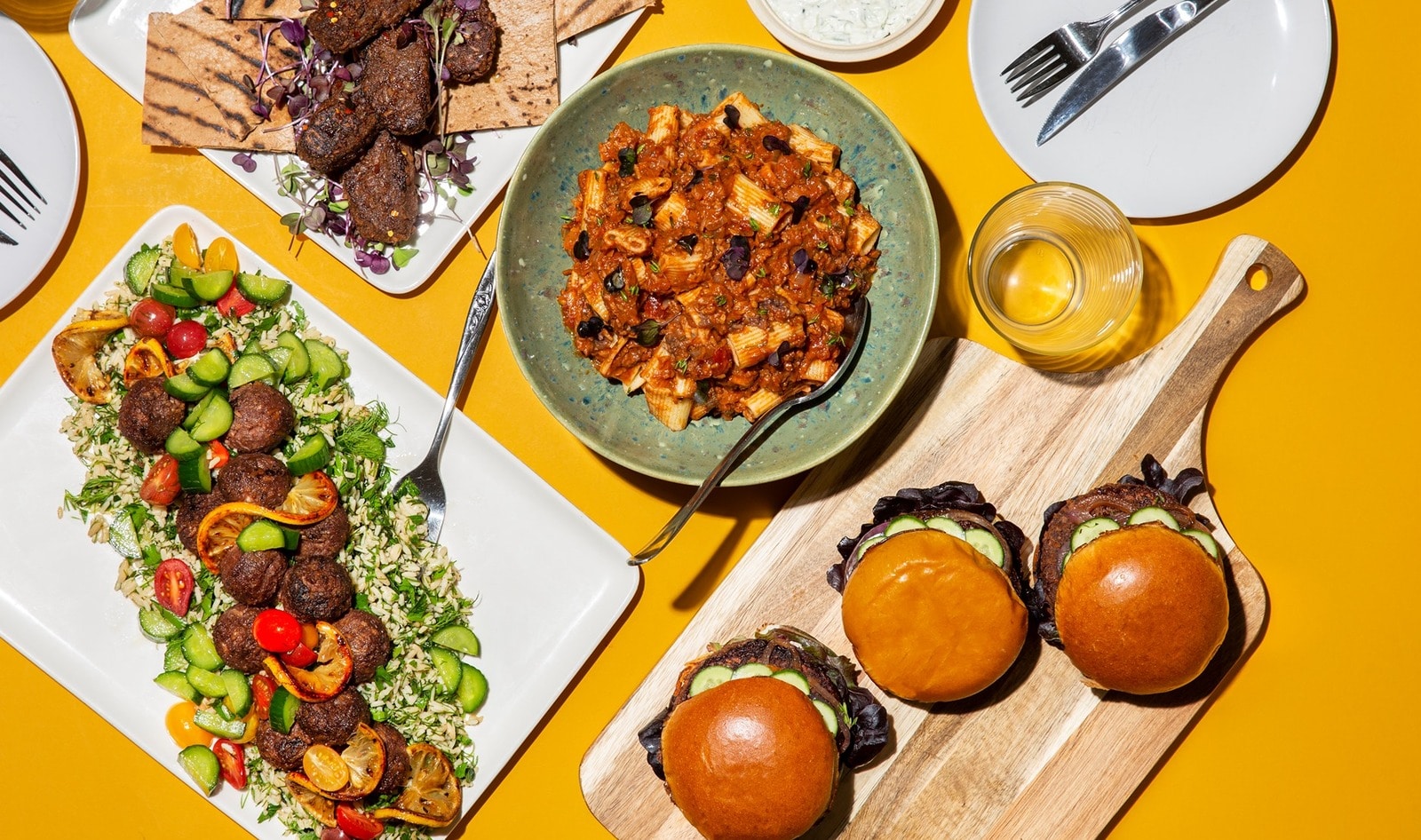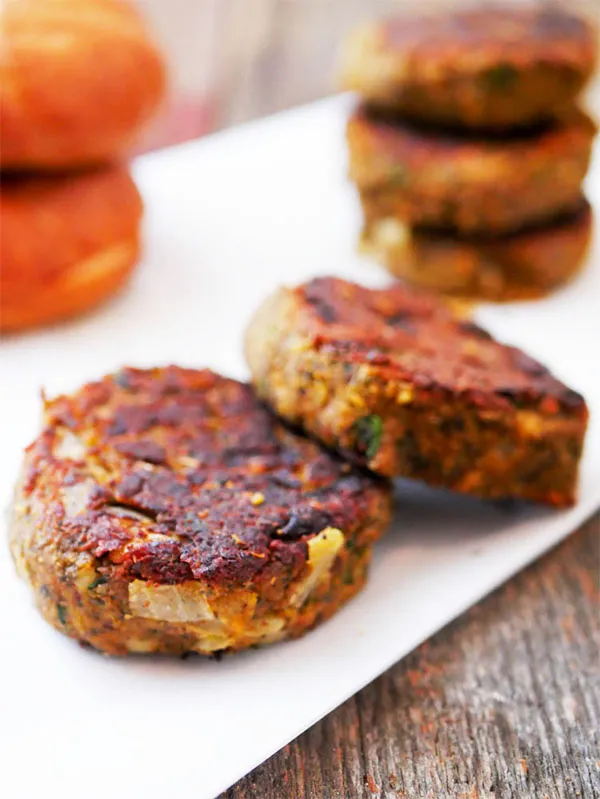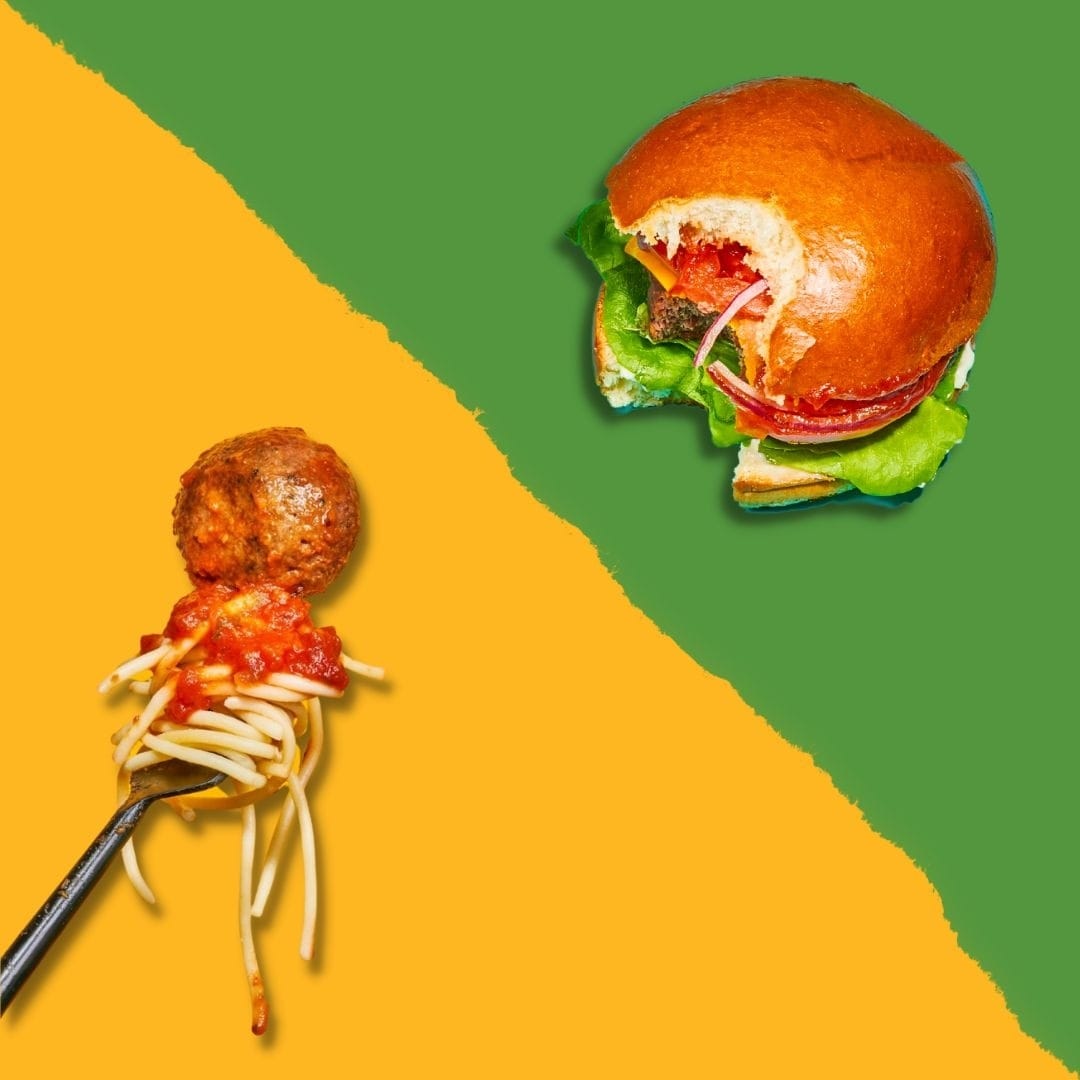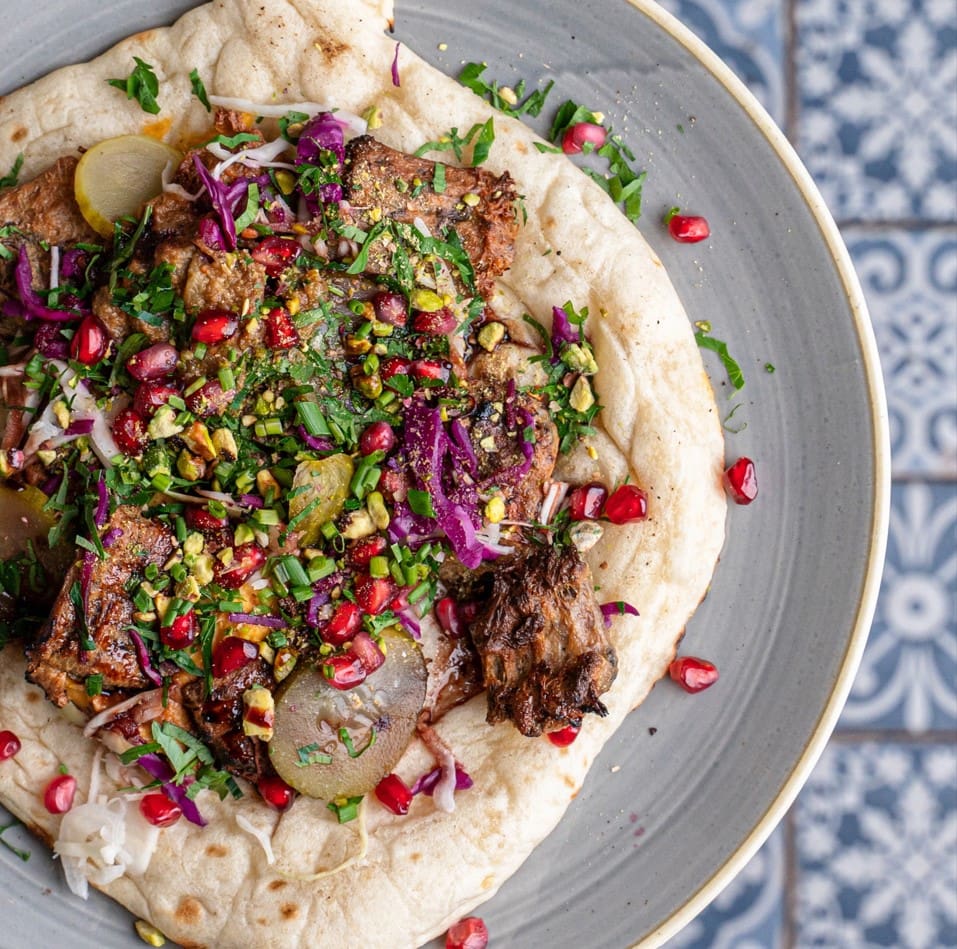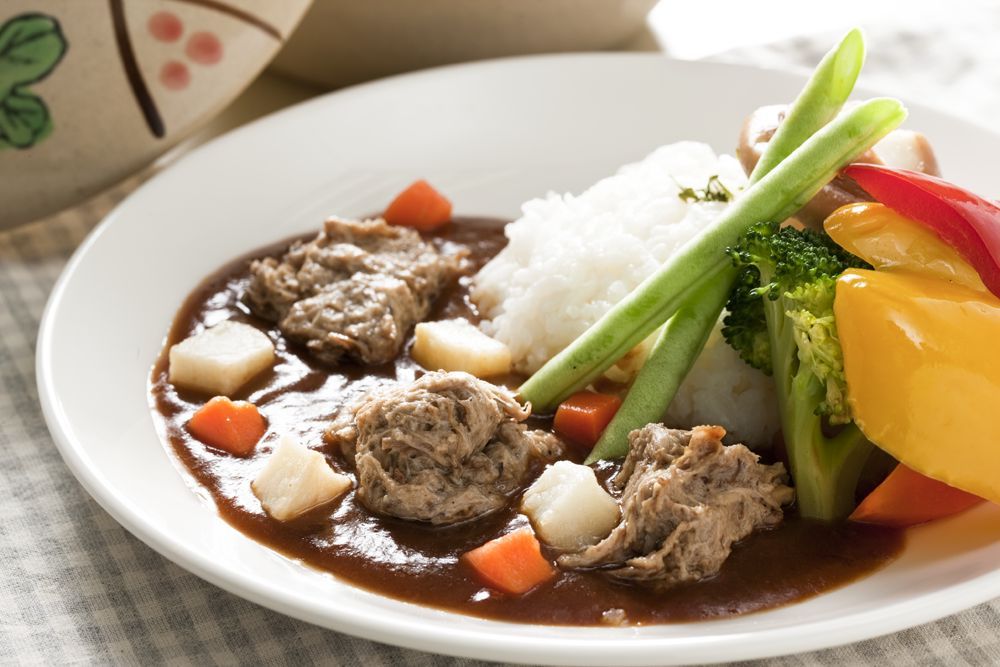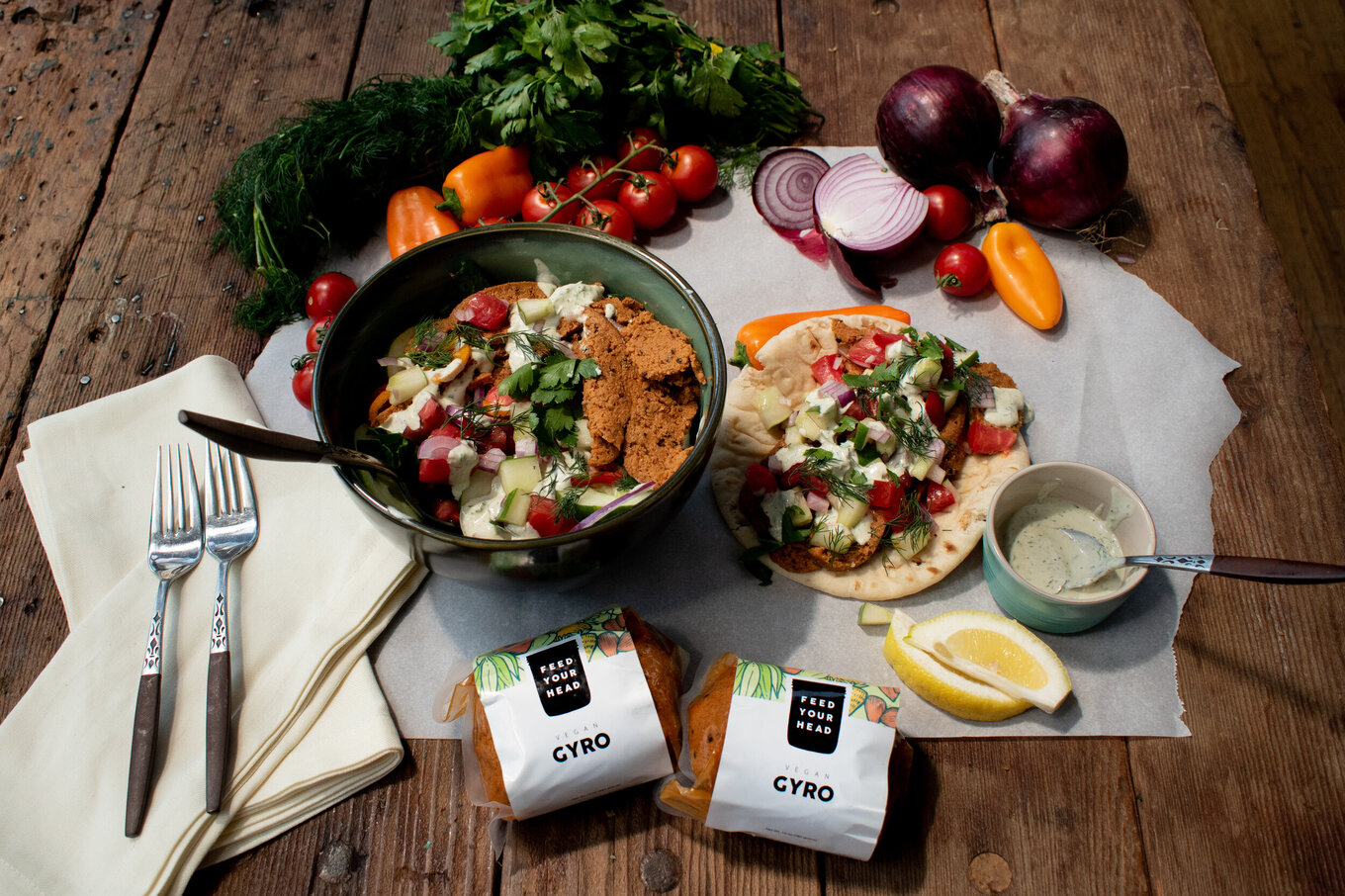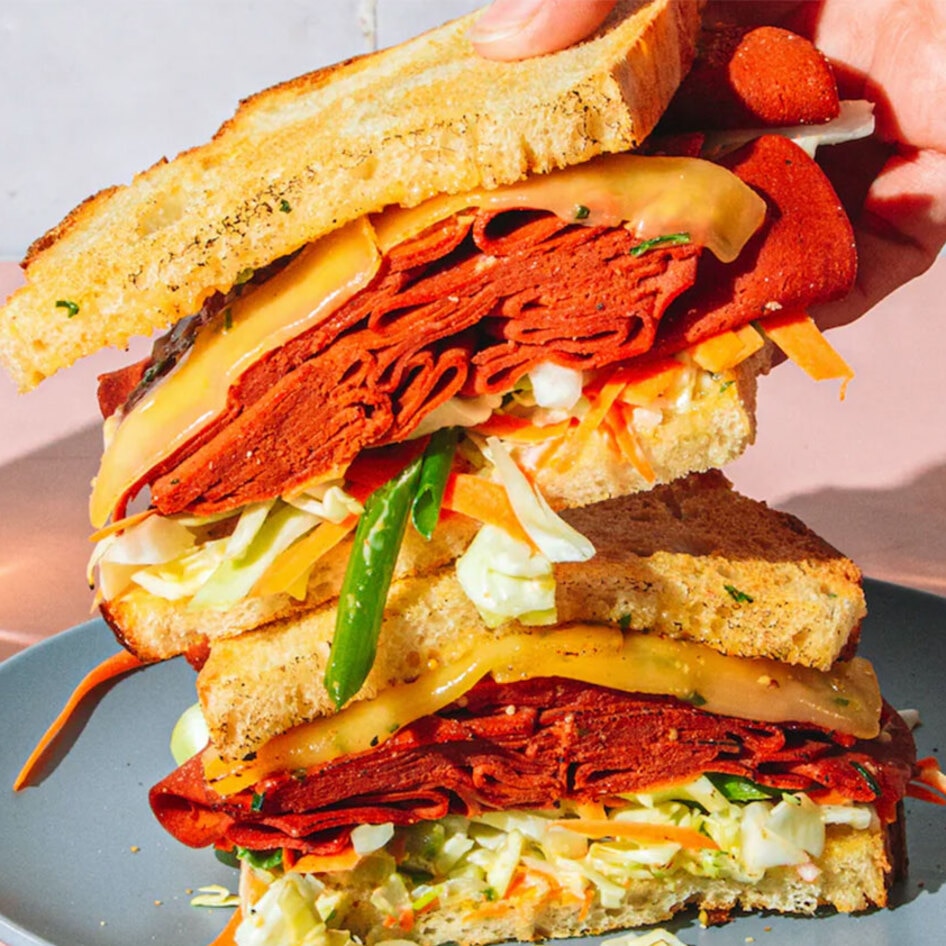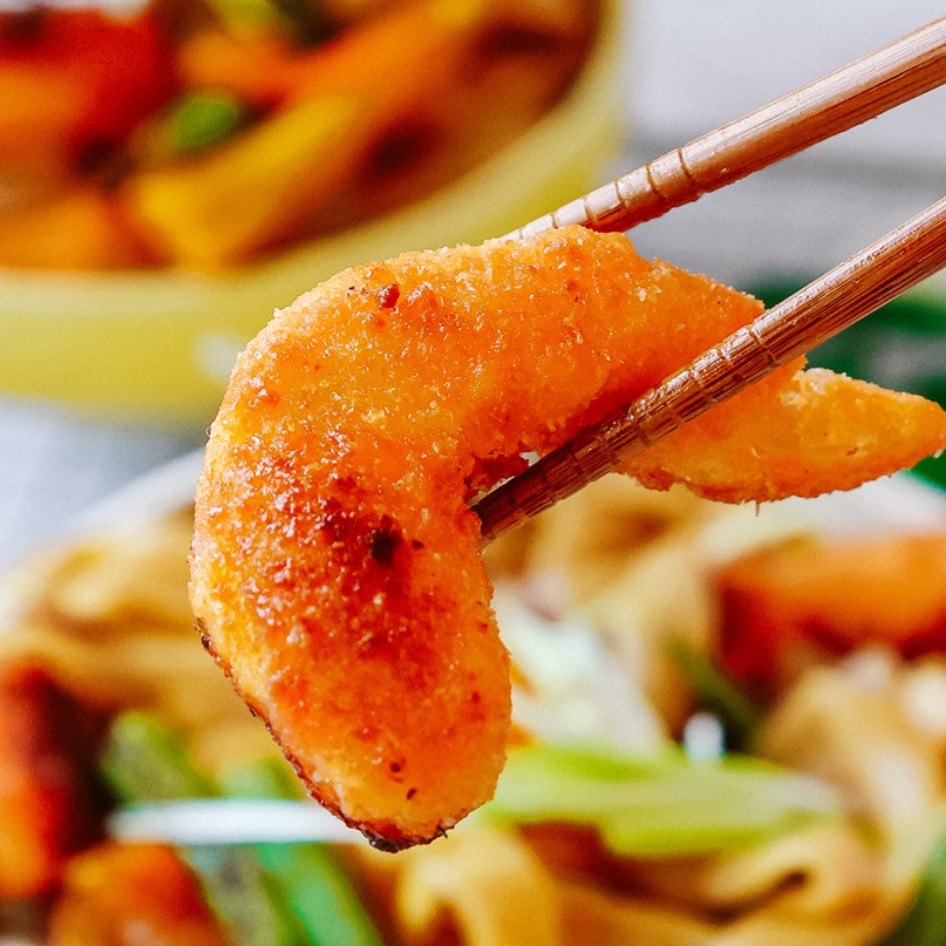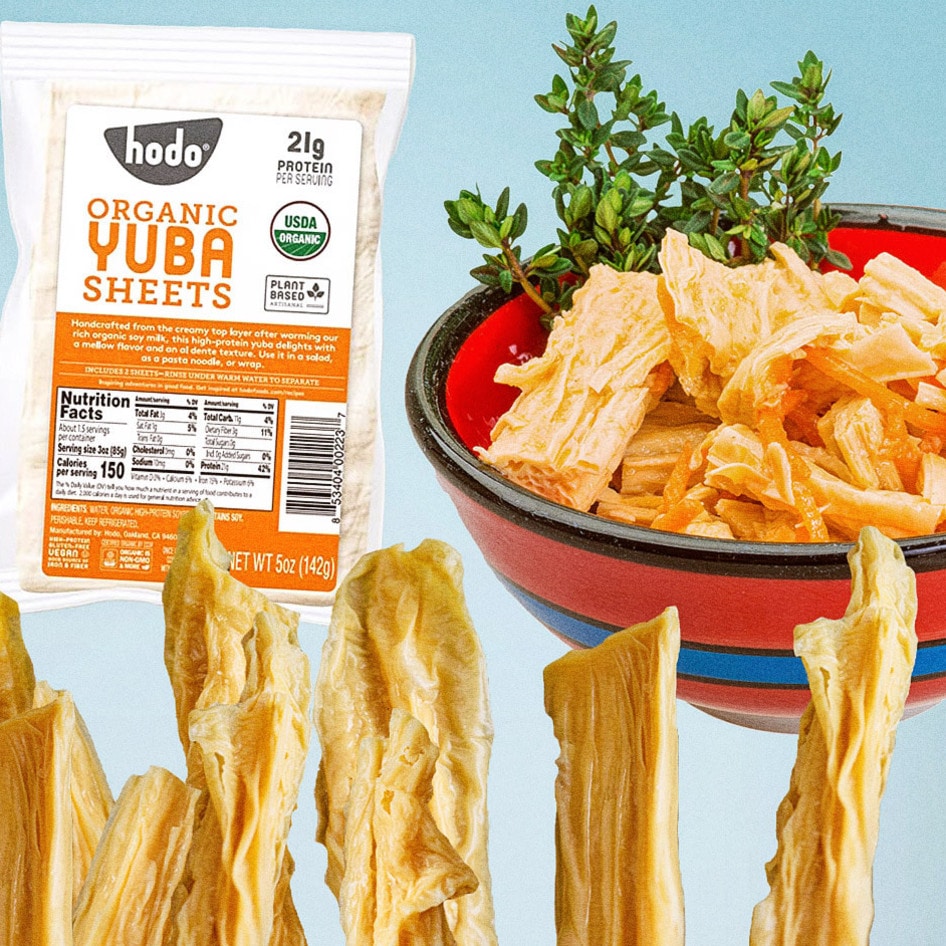For a long time, lamb hasn’t been a big deal in the US. Unlike beef, which has long been commercialized on a massive scale in the country, lamb has never received the same kind of widespread push. As the American meatpacking industry developed in the 20th century, its focus was beef, pork, and poultry. Sheep farming was generally for wool, not meat—but things are changing.
First-generation Americans with Middle Eastern and Southern European heritage are helping to drive up demand for lamb. After all, in countries like Greece, Turkey, and Lebanon, the meat is a staple. But, in general, across America, young people are also looking to try new flavors and meats, and lamb is one of them.
“With the influence of media, as well as things like the Food Network, you see an increase of just having lamb in front of people,” Bob Gallagher, senior vice president of food and beverage at American casual dining chain Tony Roma’s, told The Independent in 2019. “People are more open to it.”
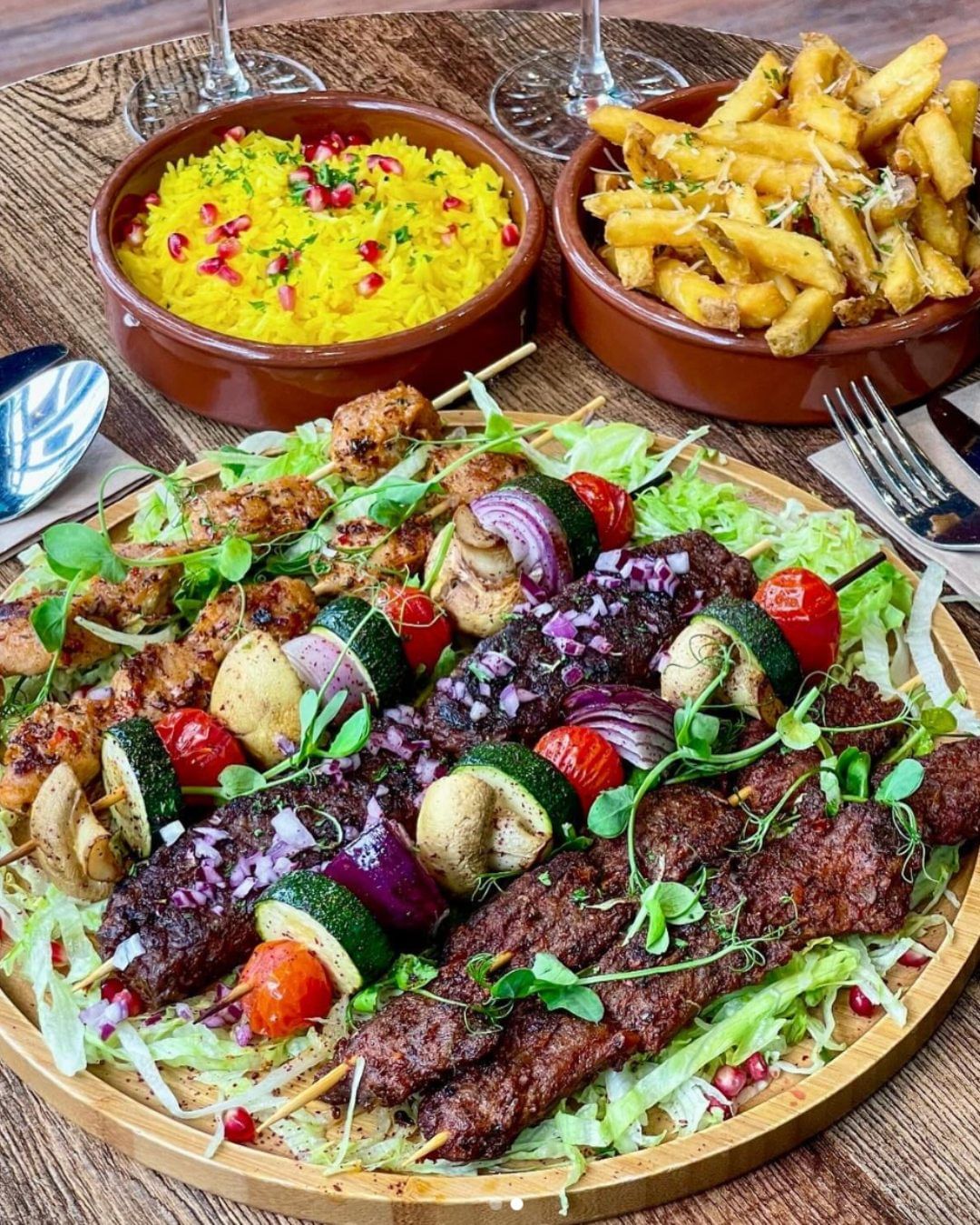 Mock | Koocha Mezze Bar
Mock | Koocha Mezze Bar
The growing interest in lamb was nurtured by the pandemic, as people had significantly more time on their hands to experiment in the kitchen. In 2022, the US market even opened its doors to lamb exports from the UK, where lamb is a Sunday roast staple. ”The US market for lamb is growing as consumer trends change,” said the then Environment Secretary George Eustice in a statement at the end of 2021. “There are now new opportunities for farmers and meat processors in this market.”
But while it presents a new flavor and texture to many Americans, this growing interest in lamb is not all positive. The industry has a major impact on the environment, and research suggests that it might be damaging to our health, too. Plant-based lamb, on the other hand, provides the same taste and texture, without many of the issues with sustainability and health, research suggests.
Find out where to buy vegan lamb below. But first, let’s dive into some of the issues with the growing lamb industry.
Is lamb environmentally friendly?
Beef often receives a lot of heat for being harmful to the planet, and for good reason. The industry is a leading cause of deforestation in the world’s rainforests, and it’s responsible for a heck of a lot of methane pollution.
According to Our World In Data, the world’s population of cattle, which stands at around 1.5 billion, is responsible for emitting at least 231 billion pounds of methane into the atmosphere every year. The UN reports that methane, which traps heat in the atmosphere, is 80 times more harmful than carbon dioxide in the two decades after it is released.
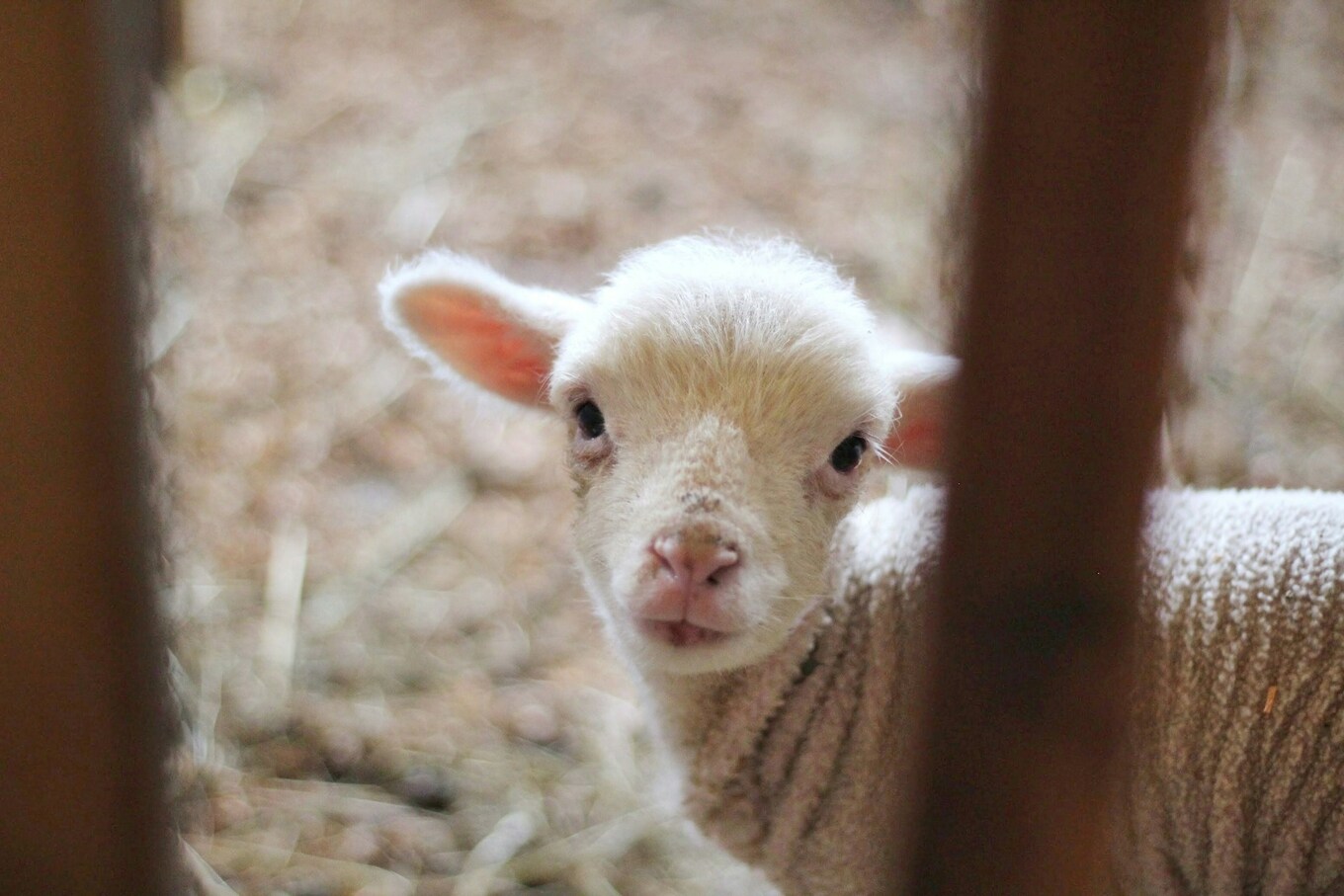 Unsplash
Unsplash
But cows aren’t the only animals that produce methane. Like cattle, sheep are also ruminants, which means they digest food through fermentation in their stomachs, and it’s this digestive process that produces methane. In 2023, it was revealed that British farmers are trying to breed low-methane-emitting sheep using genetic engineering in a bid to reduce their environmental impact.
But emissions are far from the only environmental issue associated with sheep farming. According to the BBC’s Climate Change Food Calculator, which is based on research from Oxford University, eating lamb once or twice a week contributes nearly 340 kilograms to a person’s annual greenhouse gas emissions, which is the same as driving a petrol car around 865 miles. It also uses up enough land for 12 tennis courts.
The calculator compares the impact of lamb to other foods. It notes that while pork and chicken use less land and emit fewer emissions, tofu, beans, peas, and nuts come out the best in terms of environmental impact.
Is lamb healthy?
Lamb is a source of protein, and it also contains vitamins and minerals, including zinc and iron. However, research suggests that it isn’t the best for our health when consumed all of the time.
Lamb is a source of saturated fat, which when eaten to excess, is linked to an increased risk of heart disease. However, one of the biggest concerns with lamb is that, as a form of red meat, it is listed by the World Health Organization as a Group 2A carcinogen. This means that it probably causes cancer.
“In the case of red meat, the classification is based on limited evidence from epidemiological studies showing positive associations between eating red meat and developing colorectal cancer as well as strong mechanistic evidence,” notes the organization.
Lamb meat is especially concerning when it is processed, in burgers, sausages, and kebabs, for example, as processed meats are a Group 1 carcinogen, which means they are known to cause cancer. Research has also linked processed meat with an increased risk of heart disease, type 2 diabetes, and even dementia.
BECOME A VEGNEWS VIP: Get exclusive product deals, freebies, and perks galore!
What is vegan lamb made of?
People eat lamb for many different reasons. For some, it’s simply because they like the taste, and for others, it’s also for cultural or nostalgic reasons. Lamb is a key part of Greek, Turkish, and North African cuisine, for example, and in Australia, roast lamb is the national dish.
Many people choose not to eat lamb for health and environmental reasons, but also for ethical reasons—lambs are often raised on cramped, industrial factory farms, where they are usually slaughtered before they reach six months of age. But traditional meat isn’t the only option for people who love the taste of lamb, but not the many of the negative health, environmental, and ethical connotations that come with it. Plant-based lamb offers the same texture, taste, and experience as eating regular lamb.
Vegan lamb is usually made with ingredients like soy protein or pea protein (or jackfruit or tempeh if you’re making it from home) and then seasoned with spices and herbs like rosemary, thyme, garlic, cumin, coriander, and paprika to achieve that distinctive lamb flavor.
Where to buy vegan lamb: 5 brands to check out
Find out more about where to buy vegan lamb below.
1 Black Sheep Foods
In 2021, the popular California-based Greek restaurant chain Souvla added plant-based lamb from Black Sheep Foods to the menu for the first time. It was a monumental moment, considering the chain had barely changed its menu since it opened in 2014. “We had yet to find a plant-based meat that made sense for our restaurants, but when we tried Black Sheep Foods, we felt it was the right moment to add a plant-based offering to our menu,” the chain’s founder Charles Bililies said at the time.
Three years later, Souvla’s menu still features Black Sheep Foods’ vegan lamb, which is made with pea protein, alongside several other restaurants, including the Bay Area Israeli chain Oren’s Hummus. It’s not surprising, given the rave reviews about the vegan meat online. For example, according to Black Sheep Foods, one consumer once said: “I accidentally ordered the black sheep plant-based sandwich. I love lamb and did not fully read it was plant-based, but it did not disappoint me! Delicious.”
Find out more
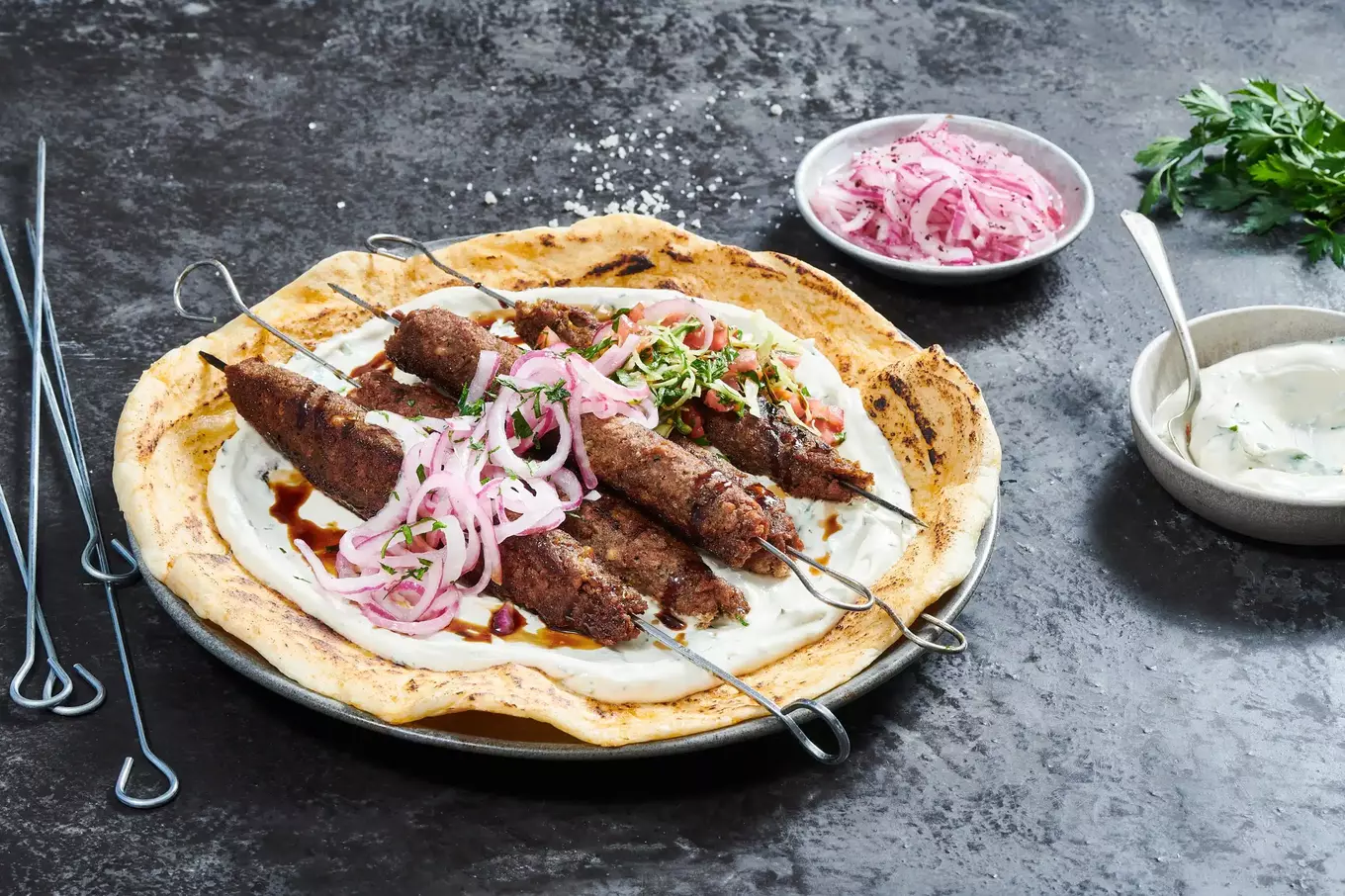 Redefine Meat
Redefine Meat
2 Redefine Meat
Since 2018, Redefine Meat has been striving to transform the food industry with its plant-based products that effectively look, cook, and taste just like traditional meat. As well as its popular 3D-printed beef flank, the brand offers several tasty plant-based protein options, including Redefine Lamb Kofta Mix. Made with a mix of soy and pea protein, the vegan meat is seasoned just like the Mediterranean classic, and it’s incredibly versatile. In fact, the mix can be shaped and molded into whatever form and texture of meat you like best.
Right now, you can find Redefine Meat’s products in more than 6,000 hospitality locations, as well as leading retailers across the UK and Europe. “If you’ve ever had one of their 3D-printed steaks, you’ll know how revolutionary these products are. We’re talking ‘game-changing,’” said one Redditor. Another added: “It looks and feels like meat. Tasted like lamb.”
Find out more
3 Mock
Mock is one of the only brands on the market making vegan brands from upcycled ingredients. According to the UK-based company, using mushroom stems, a byproduct from the food industry, helps it create the right mouthfeel and texture for its products.
“Mushroom stems are typically a byproduct of the food manufacturing industry because they only use the mushroom caps and leave the stems,” the brand’s commercial lead, Prats Bose, told Food Ingredients First. “This works well for us because it adds to the fibrous texture of our mock lamb using upcycled ingredients, which adds to the storytelling of our brand and our products.”
You can find Mock’s lamb in several restaurants in the UK, including Koocha Mezze Bar in Bristol and at the Mediterranean-inspired chain Megan’s, where it features in the chain’s popular open kebabs.
Find out more
4 HealthyVege
If you want to order vegan meat straight to your door, head to HealthyVege’s online store, which delivers the Taiwanese brand VegeFarm’s plant-based products across the US, one of which is Vegan Lamb Chunk.
Similar to Mock, the plant-based lamb is made with shiitake mushrooms, alongside soy protein and wheat protein. You can also find VegeFarm’s products in more than 500 grocery stores across the US, including Metfoods, City Fresh, and Skyfoods.
“[VegeFarm are] a Taiwanese mock meat brand and are sold only in Asian markets but they’re way better than Western mock meat brands [in my opinion],” said one Reddit fan.
Find out more
5 Feed Your Head Foods
Feed Your Head Foods started out selling plant-based meats at farmers’ markets and festivals around Chicago, but since 2011, the brand has expanded significantly. Now, you can find its products in a number of stores, including the online platform Vegan Essentials.
One of its most popular products is its Gyro Meat, which is a plant-based take on the lamb-based Greek classic. “I love gyros, but I’ve missed them since I stopped eating meat. This tastes almost exactly like a real gyro,” said one Vegan Essentials customer. Another said: I was super excited to see this option! I loved gyros when I was a carnivore. I struggle sometimes with the flavor/texture of the veg meats‚ but I bought several from this vendor and was happy I did!”
Find out more
For more plant-based stories like this, read:
JUMP TO ... Latest News | Recipes | Guides | Health | Subscribe

